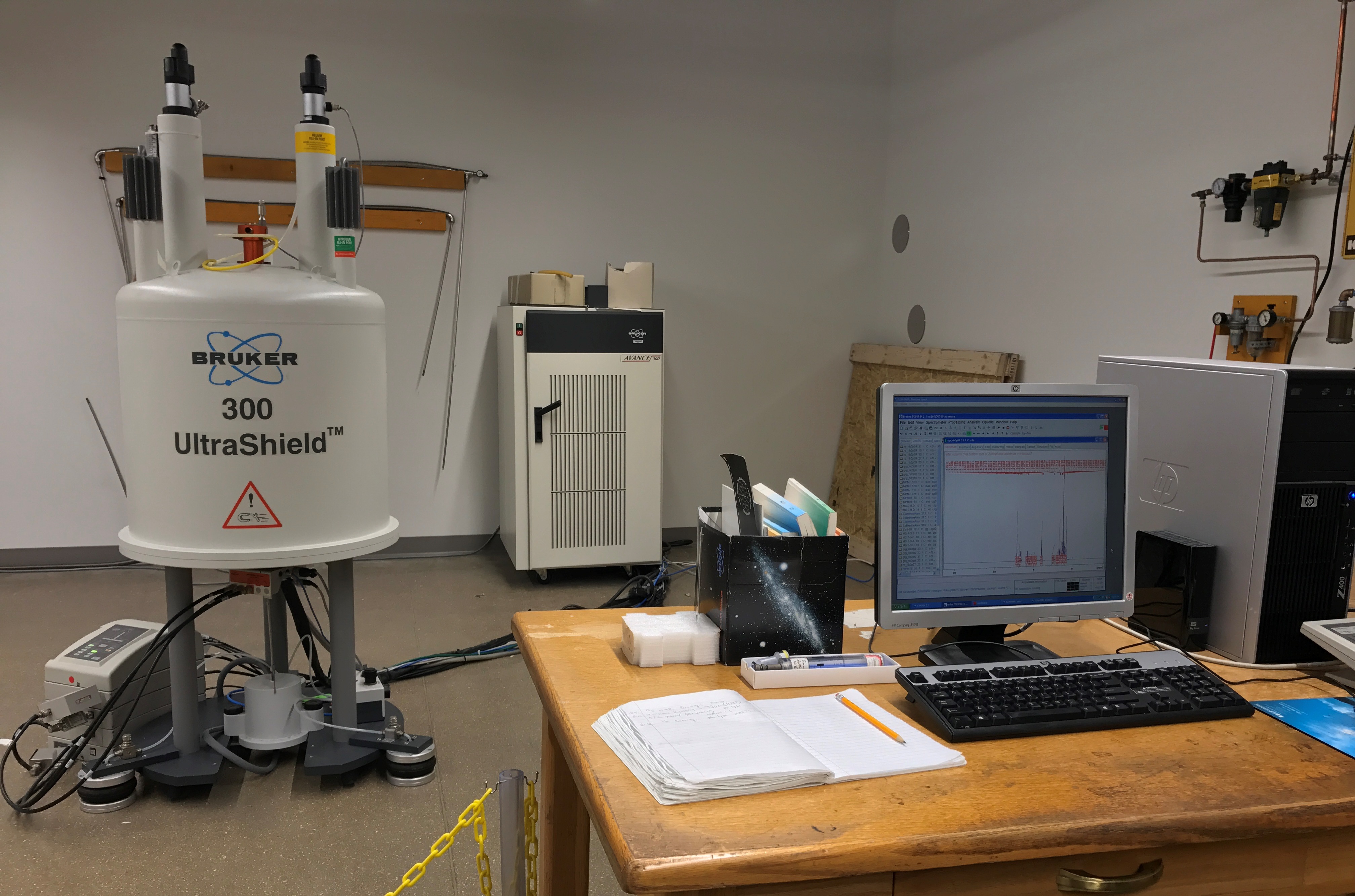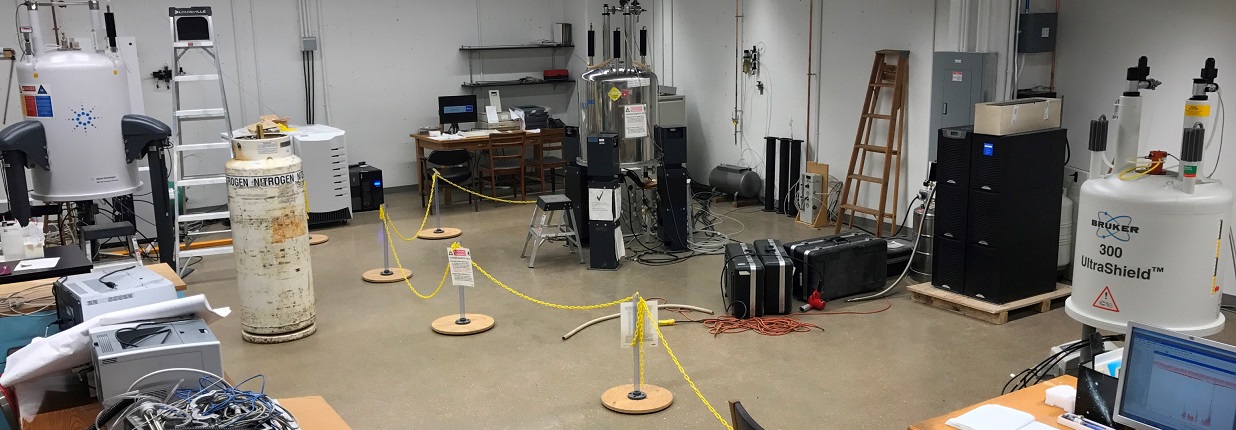The UMSL High Resolution NMR Facility is located in the Department of Chemistry and Biochemistry on the second floor of the new Science Learning Center (SLB 216) and houses two NMR spectrometers: an Agilent DD2 600, and a Bruker Avance 300. While these instruments are primarily for the use of the faculty, postdoctoral, and students in the Department of Chemistry and Biochemistry, other users (corporate other universities, and organizations) are welcome. The facility staff will provide NMR services as needed. For more information please contact to Dr. Rensheng Luo at (314) 516-5330.

Agilent DD2 600 MHz NMR Spectrometer
With support from NSF MRI-R2 grant (0959360), an Agilent DD2 600 MHz NMR spectrometer was purchased and installed in early 2012. This spectrometer is operated by a Linux PC with VnmrJ 4.1 software.
Two probes are available: a 5-mm three channel inverse gradient broadband and a 5-mm gradient broadband, each of which is capable of variable temperature experiments (-80 to +130oC). This spectrometer is a research-oriented instrument and primarily used to investigate the structures and dynamics of macromolecules and complex molecular systems as well as implement new NMR experiments for users at different areas.
The instrument specifications include:
- The Agilent premium COMPACT magnet (54mm bore)
- Dell PC with Red Hat Linux
- 1H-19F/15N-31P, 15N/13C 5mm PFG triple One NMR probe
- 1H-19F/15N-31P 5mm PFG autoX indirect detection probe
- ProTune accessory
- Variable temperature capability (-80oC to +130oC)

Bruker Avance 300MHz NMR Spectrometer
The Avance 300 spectrometer is equipped with a four-nucleus probe (1H, 13C, 19F, and 31P) with z-gradients. An additional 5 mm switchable broadband probe tunable for 1H, 19F, 15N 31P is also available. The instrument is used for routine walk-in use for monitoring reactions and checking the purity of samples, but it is also used for longer run experiments such as 1D 13C and routine 2D experiments: HMQC, HSQC, and HMBC in the evening and weekends.

